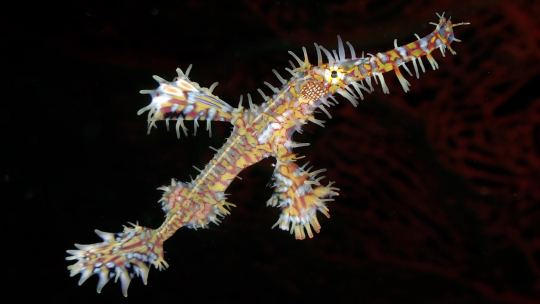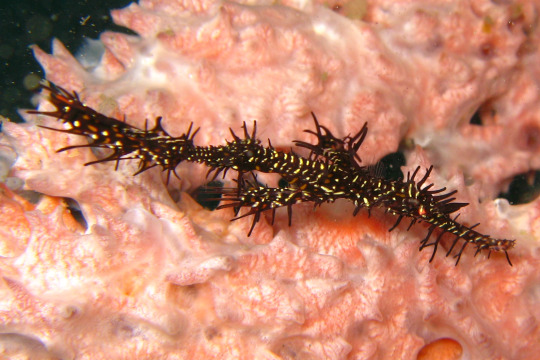#myside
Explore tagged Tumblr posts
Text

Sidelines.
#tippytoes#tightfit#stronglegsaresexy#stronglegs#singlet#sideview#side#quadsfordays#quadriceps#myside#legslegslegs#legsfordays#legs#leg#fitlegs#fitfam#fitcurves#bigquads#armpits#armpit
79 notes
·
View notes
Text
executivedysfunctionsob adthatim strigglinh totype
2 notes
·
View notes
Text
As we fall into October, let’s embrace the supernatural vibes of the sea!

The giant red mysid is a ghost of the deep, shrouded in darkness — and sometimes bioluminescence spew. Imagine this: a deep crimson hue, blending seamlessly with the darkness of the abyss, cunningly camouflaging itself inside its enigmatic realm. This mysterious creature unleashes a surprise attack — a luminous blue liquid, the deep sea equivalent of getting caught in a neon rain shower. Imagine trying to blend in now! It’s a cunning defense that startles would-be predators. Good luck hiding when you’re drenched in glowy puke! 🌌🦑
1K notes
·
View notes
Text




I read MOM by @tsukish11ma and i kept thinking abt kid reigen so much
read mom HERE!
#will the hyperlinks be by myside#reigen arataka#kageyama mom#kageyama dad#shigeo kageyama#mp100#mob psycho 100#comics#saturnhedge art#clip studio ex
164 notes
·
View notes
Text


I am all ears
c: me :)
#the band ghost#ghost band#dewdrop ghoul#let me tell you i was shaking#he was barely on myside but!!#my gifs
182 notes
·
View notes
Text
They should remake the original trilogy of star wars and everything should be the same except Han Solo is now a butch lesbian. This is barely commented on because like everyone is gay in space. Also after the Wampa attack Luke realizes she's a girl and transitions in the bacta tank (they fill it full of E)
#not sure how vader reacts#could be funny if he was lile “rule my empire with me my son-” “actually-”#“oh my bad rule my empire by myside as my daughter”#star wars#han solo#luke skywalker#bat at hornets nest
15 notes
·
View notes
Text
today's invertebrate.......many an idiomysis
these whimsical creatures of joy thrive on happiness!!
each one of them owns a tiny idiomysis house with a tiny idiomysis garden! they never know of anger or sadness, and they'll never need to
they just live innocent idiomysis lives in warm seas of joy and whimsy I love these guys
they're also quite knowledgeable in dark magic and the occult. if you ever need to learn spells relating to necromancy, the dark arts, rejuvenation, spiritual summoning and demonic rituals (VERY ILLEGAL!!!!), call an idiomysid. it might just change your life forever
(pics by franca2020 and harazaki, both from iNaturalist. video is by jacobguy.media from instagram)



2 notes
·
View notes
Note
Wait, which animals raise livestock?
Several species of ants will 'herd' aphids around (a type of plant lice)- even picking them up and putting them back with the group if they wander off. The ants will attack anything that approaches their aphid herds, defending them. The aphids produce a sugary excretion called honeydew, which the ants harvest and eat.
Some ants will even 'milk' the aphids, stroking the aphids with their antennae, to stimulate them to release honeydew. Some aphids have become 'domesticated' by the ants, and depend entirely on their caretaker ants to milk them.
When the host plant is depleted of resources and dies, the ants will pick up their herd of aphids and carry them to a new plant to feed on - a new 'pasture' if you will.
Some ants continue to care for aphids overwinter, when otherwise they'd die. The ants carry aphid eggs into their own nests, and will even go out of their way to destroy the eggs of aphid-predators, like ladybugs.
--
Microhylids – or narrow-mouthed frogs - have an interesting symbiosis with Tarantulas.
While the spiders could very easily kill and eat the much-tinier frogs, and DO normally prey on small frogs, young spiders instead will use their mouthparts to pick up the microhylid frogs, bring them back to their burrow, and release them unharmed.
The frog benefits from hanging out in/around the burrow of the tarantula, because the tarantula can scare away or eat predators that normally prey on tiny frogs, like snakes, geckos, and mantids. The tarantula gets a babysitter.
Microhylid frogs specialize in eating ants, and ants are one of the major predators of spider eggs. By eating ants, the frogs protect the spider's eggs. The frogs can also lay their eggs in the burrow, and won't be eaten by the spider.
So it's less 'livestock' and more like a housepet - a dog or a cat. You stop coyotes/eagles from hurting your little dog/cat, and in return the dog/cat keeps rats away from your baby.
--
Damselfish grow algae on rocks and corals. They defend these gardens ferociously, and will attack anything that comes too close - even humans. They spend much of their time weeding the gardens, removing unwanted algaes that might overtake their crop.
The species of algae that they cultivate is weak and and sensitive to growing conditions, and can easily be overgrazed by other herbivores. That particular algae tends to grow poorly in areas where damselfish aren't around to protect and farm it.
Damselfish will ALSO actively protect Mysidium integrum (little shrimp-like crustacians) in their reef farms, despite eating other similarly sized invertebrates. The mysids are filter feeders, who feed on zooplankton and free-floating algae, and their waste fertilizes the algae farms. Many types of zooplankton can feed on the algae crop, and the mysids prevent that.
While Mysids can be found around the world, the only place you'll find swarms of Musidium integrum is on the algae farms that Damselfish cultivate.
Damselfish treat the little mysids like some homesteaders treat ducks. Ducks eat snails and other insect pests on our crops, and their poop fertilizes the land. The ducks can be eaten, but aren't often, since they're more useful for their services than their meat.
--
There are SEVERAL species of insect and animal which actively farm. They perform fungiculture and horticulture: deliberately growing and harvesting fungus and plants at a large-scale to feed their population.
Leaf-cutter ants and Termites both chew up plant material and then seed it with a specific type of fungus. The fungus grows, and the termites/ants harvest the mushroom as a food source.
Ambrosia beetles burrow into decaying trees, hollow out little farming rooms, and introduce a specific fungii (the ambrosia fungi), which both adults and larval beetles feed on.
Marsh Periwinkles (a type of snail) cultivates fungus on cordgrass. They wound the plant with their scraping tongue, then defecate into the wound so their preferred fungus will infect it and grow there. They let the fungus grow in the wound a bit, and come back later to eat.
9K notes
·
View notes
Text
Since I have been hyper fixated on this playlist I must share.
Maybe I'll finally finish grieving
0 notes
Link
Eve, her sides in FNIA Reborn (CH: 5 and CH: 6) by EVELYN1563
0 notes
Text
WHAT ARE THEY TEACHING THE YOUTHTHESE DAYS
1 note
·
View note
Text
🐠 Daily Fish Fact: 🐠
The Ornate Ghost Pipefish, or harlequin ghost pipefish, is a false pipefish. The species' name comes from the Greek paradoxos, referring to this fish's unusual external features. Although relatively common, ornate ghost pipefish are very well-camouflaged and difficult to find. It occurs either as solitary individuals or in pairs, among floating weeds, or crinoids where the feed on mysids and small benthic shrimp.


#ornate ghost pipefish#harlequin ghost pipefish#pipefish#long boi#noodle boi#spiky#camoflauge#respect the locals#fish#fish post#ocean#ocean life#marine#marine life#marine biology#sea creature#sea life#shark blog#fish fact#daily fish fact#daily fish
392 notes
·
View notes
Text
thinking about my last post and so wishing i had the skills to make all of the edits myself, but i have visions, bare with me, ill try to explain this as best i can
for would you fall in love with me
macaque: would you fall in love with me again, knowing all ive done, the things i cant undue(everything with LBD and trying to hurt mk and crew)
wukong: i will fall in love with you over and over again
for the challenge maybe something like
wukong: whoever can (whatever challenge idk) will be my new warrior, and be my myside as my right hand
or something idk
28 notes
·
View notes
Text
Fish of the Day
Today's fish of the day is the leafy sea dragon!

The leafy seadragon was suggested by pasta! Thank you Pasta! The leafy seadragon, also known as Leafies, and Glauert's seadragon, scientific name Phycodurus eques, is known for their unique camouflage! Originally thought to exist in small and interspersed populations, it is now known that they are widespread, and can be found on the Southern and Western coast of Australia, these fish are native to kelp beds and other grassy areas, although they can also be found in sandy patches. They prefer areas at depths more than 50 meters below the surface, and this is where they reside close to the seafloor.

Like others in the Syngnathinae family (Pipefishes, seahorses, and seadragons), leafy seadragons have incredibly poor swimming skills. They swim via quick movements form the dorsal fin, and although pipefish have the aid of a caudal fin, seahorses and seadragons have no such luck. Seadragons also lack the prehensile tails that is associated to their seahorse cousins, leaving them only with camouflage to aid their survival. The leafy seadragon diet is made up of tiny planktonic crustaceans called mysid shrimp. These shrimp are caught by sucking them into the mouth of the fish, and they have advanced enough eyes to hunt them. They can get as large as 20 inches, but most only get about as large as 12inches on average.

Mating in leafy sea dragons is very similar to the mating of seahorses. Females will lay up to 250 eggs in a single breeding season, and these eggs will be held by the male. However, unlike seahorses, seadragons do not have a specialized pouch for incubating their children, but rather male seadragons hold their eggs underneath their tail in a brood patch, which protects and aerates the eggs. In about 4 weeks these eggs will be ready to hatch, a process that takes around 24 hours, where the father helps by shaking the tail to help dislodge. After this the babies will be only 20mm large, and survive independently, hunting zooplankton. Seadragons grow quick though, reaching 8 inches in their first year of life. After this they will then reach their full adult size by their second year, when they also reach sexual maternity. They will then live a full life of 5-7 years.

Have a good day everyone!

#fish#fish of the day#fishblr#fishposting#aquatic biology#marine biology#freshwater#freshwater fish#animal facts#animal#animals#fishes#informative#education#aquatic#aquatic life#nature#river#ocean#leafy seadragon#seadragon#leafies#australia#Phycodurus eques#sciblr
120 notes
·
View notes
Text
mysides hurt i just discovered theres a homophobic stardew npc and i cant stop laughing
332 notes
·
View notes
Text
I'm thinking about making a bugs and other arthropods iceberg, just for funsies
here are the ideas I have so far!
LEVEL 1: isopod cultures, difference between butterflies and moths, springtails are not insects, true bugs, fireflies are beetles, harvestmen aren't spiders, funky treehoppers, carcinisation
LEVEL 2: importance of mosquitoes, larviform females, venezuelan poodle moth is a hoax, barnacles are upside down crustaceans, fly diversity, horshoe crabs are related to arachnids, mysid shrimps and krill are not related to true shrimp, crustacean zoea, insects are crustaceans, terrestrial amphipods, ant trophobiosis, funny weevils, whip spiders, playful behaviour in bees, assassin bugs that cover themselves in their prey's corpses, honeybees are invasive, 'spider with wings' hoax, hotwheels sisyphus, scorpions are great mothers
LEVEL 3: cockroaches do not spread diseases, gladiators, tongue eating lice aren't that bad, tongue worms, flightless flies and moths, hangingflies, spider that feeds on human blood*, hematophagous moths, polymorphic butterflies, myrmecophil insects, ant mimicking spiders, sawflies, twig spiders, snout mites, rove beetle tongues, kermesidae, parasitic copepods, there's no point in killing spotted lanternflies, buoy barnacles, tar flies, protecting native bees
LEVEL 4: ice crawlers, fleas are actually scorpionflies, mantises are related to cockroaches, ichthyurus, insane isopod diversity, flies are not the only insects with halteres, phytalmia, owlflies, cockroach trophobiosis, termites are cockroaches, ancyra, longhorn beetle that stings with antennae, saltwater skating flies, coatonachthodes, bioluminescent fairy shrimp, mr. arthrobalanus, primarily herbivorous spider, forcepflies, lake baikal giant amphipods, fruit fly covered in eyes, even weirder fly diversity
LEVEL 5: terrestrial ostracods, serolidae, ascodipteron
so what do you think? anything I should add or change?? should I just scrap this concept altogether???? I don't know much about bugs when it comes to facts or how well known said facts are so I'd really appreciate some help with this!
*it doesn't exactly feed on human blood like mosquitoes or bed bugs, it just eats blood from mosquitoes that are full of blood
24 notes
·
View notes